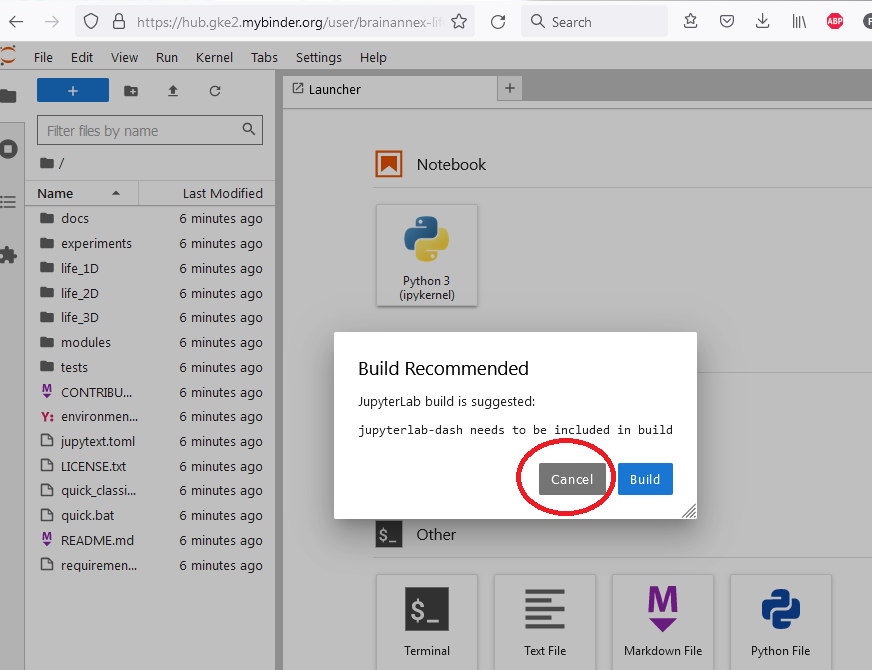3 Options Available, from simplest to most advanced
♦ OPTION #1 (SIMPLEST/FASTEST, recommended to start with)
get your feet wet by browsing the annotated notebooks – and their graphics
Nothing to install/run!
Explore the rendered (but not live) version of the Jupyter notebooks, including their graphical outputs,
on the Experiments Page (annotated list of all notebooks.)
You will be able to see all the runs, their results, the graphics, and tons of commentary – but you won't be able to actually run them.
♦ OPTION #2 (VERY EASY, recommended as a second level of engagement): 1-click Live Demo
A live demo with nothing to install!
- CLICK HERE (it will fire up a temporary hosted JupyterLab environment; it'll take roughly a minute)
- Say Cancel when asked to include "jupyterlab-dash" in the build :

- Explore the Jupyter notebooks in the
experimentsfolder, and re-run/modify any, as you wish. (Annotated list of all notebooks.) Note: nothing will get saved; it's all temporary.
For more guidance, see our short overview video.
♦ OPTION #3 (EASY, recommended when you're ready to start using the program)
Short version: use pip install life123 , for example on Colab or on your IDE (such as PyCharm, etc),
then download some Jupyter notebooks from the repository (look for the ipynb file suffix), and run/modify them as you please!
(Assuming you have JupyterLab installed.)
Don't like notebooks? No problem – you can simply download and use their python-file .py versions, also provided in the same repository pages, above.
For more details, see our Download/Install page.